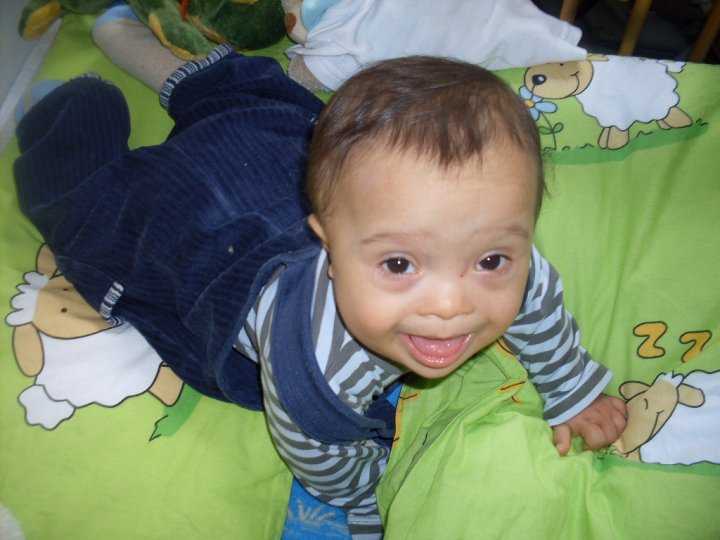
CHICAGO, Ill. — A federal appeals court has unanimously ruled that an Indiana law that bans the murder of unborn children based on a Down Syndrome diagnosis or any other disability is unconstitutional because it places an “undue burden” on a “woman’s right” to obtain an abortion.
“The State urges that the non-discrimination provisions represent a ‘qualitatively new type of abortion regulation,’ and that it has compelling interests in prohibiting discrimination of particular fetuses in light of technological advances in genetic screening. Indeed, as we have noted, the State ‘has legitimate interests from the outset of the pregnancy in protecting the health of the woman and life of the fetus that may become a child,'” wrote Circuit Judge William Bauer of the Seventh Circuit Court of Appeals in Chicago.
“But the Supreme Court has already weighed the State’s interests against a woman’s privacy right to terminate her pregnancy prior to viability,” he continued. “We cannot reweigh a woman’s privacy right against the State’s interest. The Supreme Court has been clear: the State may inform a woman’s decision before viability, but it cannot prohibit it.”
The majority also struck down a provision requiring aborted babies to be cremated or buried, stating that “the law does not recognize that an aborted fetus is a person.”
“The State asks us to infer a legitimate interest by pointing to state and federal fetal homicide statutes, as well as state wrongful death statutes that treat non-viable fetuses as human beings. But these statutes seek to address a valid state interest in promoting respect for potential life. The fetal disposition provisions differ because there is no potential life at stake,” Bauer stated.
Circuit Judge Daniel Manion, while concurring with his colleagues on striking down the abortion restriction, disagreed on the disposal portion, finding it a “legitimate exercise of Indiana’s police power.”
All of the judges on the three-judge panel were appointed by Republican presidents. Read the ruling in full here.
As previously reported, H.B. 1337 was signed into law in March 2016 to protect babies that would otherwise be killed because of an adverse diagnosis.
“Indiana does not allow a fetus to be aborted solely because of the fetus’s race, color, national origin, ancestry, sex, or diagnosis or potential diagnosis of the fetus having Down syndrome or any other disability,” the bill, introduced by Rep. Casey Cox, R-Fort Wayne, read.
It also cited physical and mental disabilities, disfigurement, scoliosis, dwarfism, albinism and amelia.
Indiana Sen. Liz Brown, R-Fort Wayne, told reporters at the time that the bill was needed because physicians sometimes encourage mothers to abort in explaining that their child has a health challenge or abnormality.
“What we hear from doctors is, ‘It would really be better off if you were not born,’” she lamented. “If you are born, we will love you, and we think you have equal rights and should be a member of society. In fact, we have the Americans with Disabilities Act and have to make accommodations. But we don’t want to make the accommodation before you’re born, and in fact, it would really be easier if you were not born.”
In September, U.S. District Judge Tanya Walton Pratt ruled that the law was unconstitutional and clashed with the 1973 ruling of Roe v. Wade, which stated that mothers may obtain an abortion until the point of viability—that is, the time when the baby may survive apart from the life support of his or her mother’s womb.
“The challenged anti-discrimination provisions directly contravene well-established law that precludes a state from prohibiting a woman from electing to terminate a pregnancy prior to fetal viability,” Pratt wrote. “The United States Supreme Court has stated in categorical terms that a state may not prohibit any woman from making the ultimate decision to terminate her pregnancy before viability.”
The state appealed, but on Thursday, the Seventh Circuit Court of Appeals upheld the decision.
“Indiana made a noble attempt to protect the most vulnerable members of an already vulnerable group,” Manion, appointed to the bench by then-President Ronald Reagan, wrote in a separate opinion.
However, “[w]ithout a significant recalibration, the States sadly cannot protect even unborn children targeted because of their race, sex, or a diagnosis of Down syndrome. But this court is powerless to change that state of affairs. Only the Supreme Court or a constitutional amendment can do that,” he opined.
It is not yet known whether Indiana will appeal to the U.S. Supreme Court.
As previously reported, in the Patrick Henry College film “Come What May,” moot court competitor Caleb Hogan, played by Austin Kearney, argues against the “viability” standard of the nation’s highest court.
“They tear the baby out of its only means of life support, and say, ‘Wow, look at that; our machines can’t sustain it’s life,’ and somehow, that proves it’s not viable?” he declares.
Psalm 139:13-16 reads, “For Thou hast possessed my reins; Thou hast covered me in my mother’s womb. I will praise Thee, for I am fearfully and wonderfully made. Marvelous are Thy works, and that my soul knoweth right well. My substance was not hid from Thee when I was made in secret and curiously wrought in the lowest parts of the earth. Thine eyes did see my substance, yet being unperfect, and in Thy book all my members were written, which in continuance were fashioned when as yet there was none of them.”
Become a Christian News Network Supporter...


